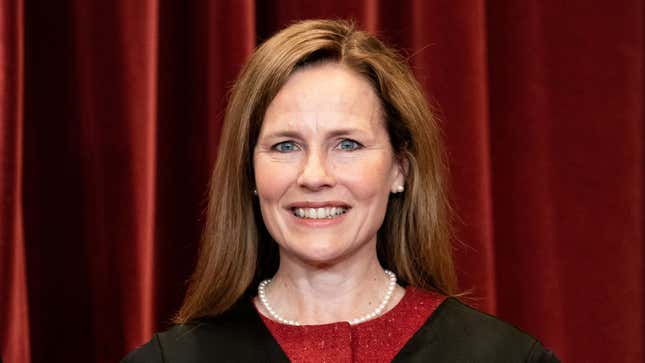Women ‘Were Always Crying’: Video Leaks of Amy Coney Barrett’s Mysterious Faith Group
The newly unearthed video shows the co-founder of People of Praise reminiscing about the group's early days.
Politics

The People of Praise—the Christian network that became nationally known due to its affiliation with Supreme Court Justice Amy Coney Barrett—regularly drove women congregants to tears, according to a new video published Friday by the Guardian.
The video features the founder’s wife, Dorothy Ranaghan, speaking about the origins of People of Praise during a private event celebrating the group’s 50th anniversary. And the earliest teachings, which apparently had women wearing shades to cover their swollen, cried-out eyes, seem pretty hard to swallow. “Suddenly we were having teachings on headship and the roles of men and women and all sorts of things we hadn’t counted on at all,” Ranaghan says in the video, referencing the group’s belief that men are divinely the heads of household. “Some of the women—who are still in my women’s group, as a matter of fact—were wearing sunglasses all the time, because they were always crying and would have to hold on to their chairs every time somebody started teaching, because ‘What are we going to hear this time?’ But it all worked out just fine.”
And I guess, unfortunately, it has. After all, this was the group’s golden anniversary. However, as the Guardian notes, this is the first time someone from People of Praise acknowledged that women had a negative reaction to its teachings about male superiority and women’s divine subjugation.
-

-

-

-

-

-

-

-

-

-

-

-

-

-

-

-

-

-

-

-

-

-

-

-

-

-

-

-

-

-

-

-

-

-

-

-

-

-

-

-








































